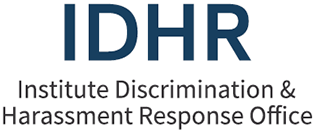MIT’s Process for Incidents Related to Israel-Hamas War
MIT has taken, and when necessary will continue to take, a multi-faceted approach to addressing campus tensions on campus. These efforts include:
- Referring complaints of community member misconduct to MIT’s disciplinary processes, including complaints of harassment and violations of MIT’s rules on the time, place, and manner for protests and demonstrations.
- Numerous statements and video messages from President Sally Kornbluth and other senior leaders denouncing antisemitism and Islamophobia, promoting MIT’s values of inclusivity and civility, and reminding community members about MIT’s conduct policies and expectations.
- Various educational and community-building efforts such as the Institute’s “Standing Together Against Hate” initiative, new student orientation programs on antisemitism and Islamophobia, and the utilization of the MIT Center for Constructive Communication’s RealTalk@MIT initiative to encourage a culture of listening and dialogue within and across groups within the community.
- Providing individualized support resources to students to ensure their uninterrupted access to MIT’s educational programs and activities. For example, this has included no-contact orders, housing relocations, academic and workplace support, educational/impact conversations, and other forms of support.
- Enhanced security measures to keep all community members safe.
How are MIT’s disciplinary processes responding to reports of policy violations from community members?
As noted above, the Institute’s well-established disciplinary process is one of the tools that is guiding MIT’s response to reports from students, staff, faculty, and others related to campus tensions about the ongoing war between Israel and Hamas.
RECEIVING REPORTS. Most reports have been submitted to the Institute Discrimination and Harassment Response (IDHR) office, with a smaller number submitted to the Office of Student Conduct and Community Standards (OSCCS) or via the MIT hotline. Some reports concern individuals’ behavior, while others focus on the actions of organizations. In many instances, multiple parties have reported about a single incident or event.
Some of the reports MIT has received are descriptions of conduct that the reporting party has raised as a concern, but for which they have not requested that MIT take action or pursue disciplinary complaints. In addition, many reports have been submitted anonymously and/or do not identify the person responsible for the alleged behavior, which necessarily limits MIT’s ability to follow up on them.
REVIEWING REPORTS. For reports alleging MIT policy violations by identified students or student groups, the faculty-led Committee on Discipline (COD) is responsible for reviewing and resolving the case. IDHR would also be involved in investigating the facts of any cases alleging discrimination or discriminatory harassment. In reviewing reports, IDHR and the OSCCS consult with other relevant units, including the Division of Student Life, Human Resources (HR), and the Office of General Counsel, in order to triage cases promptly and fairly. Depending on the nature of the report, OSCCS or IDHR may reach out to the reporting parties to determine whether they wish to pursue a formal complaint. The Institute itself may also initiate a complaint.
RESOLVING FORMAL COMPLAINTS. Under the COD rules, cases that move forward to the formal complaint resolution process can be resolved either:
- administratively by the COD chair, or
- after a hearing before a panel of COD members in cases where the sanctions being considered include:
- suspension or expulsion of students, or
- suspension or derecognition of a student group.
For more information about the COD process, please visit the COD website.
For reports alleging policy violations by employees, which includes staff and faculty, the case will be resolved based on the position of the employee and the nature of the conduct, as described in Policies and Procedures Section 9.8.
STATUS OF CASES. As of December 10, 2024, 110 cases are in various stages of the complaint resolution process (inclusive of cases that have been resolved). These cases involve allegations that community members violated MIT’s policies and guidelines on demonstrations and events, harassment, retaliation, and other policies. Interim actions and/or final sanctions that have been issued in these cases include warnings, probation, campus access restrictions, suspensions, and/or bans from campus for a period of time. In addition to these disciplinary outcomes, MIT has also provided various supportive and other measures, including in cases that were not referred to the disciplinary process. For example, these measures have included no-contact orders, housing relocations, academic and workplace supports, and educational/impact conversations.
CONFIDENTIALITY. We understand that some members of our community would like more detail about how cases are addressed and resolved. COD rules (and for cases concerning individual students, federal law) and MIT policy require that disciplinary cases be handled confidentially. As a result, MIT’s practice is not to share details about specific cases with the MIT community while the COD or HR processes are ongoing or after they are complete.


